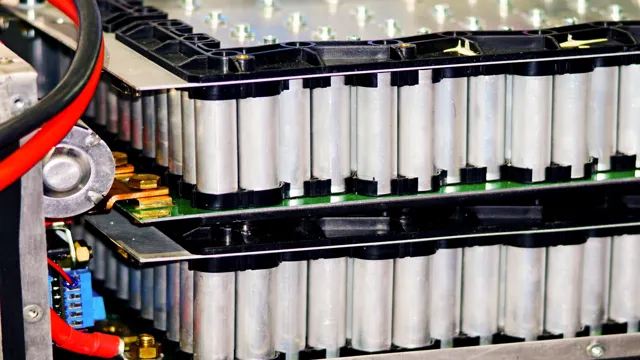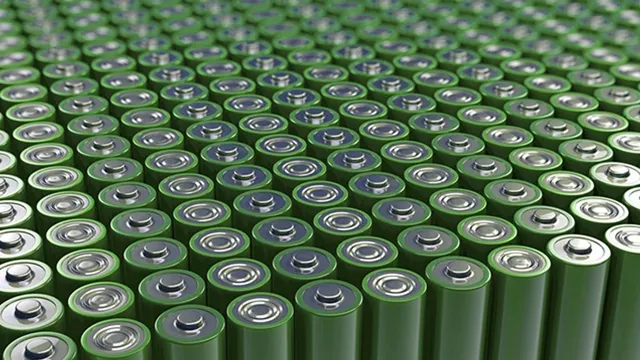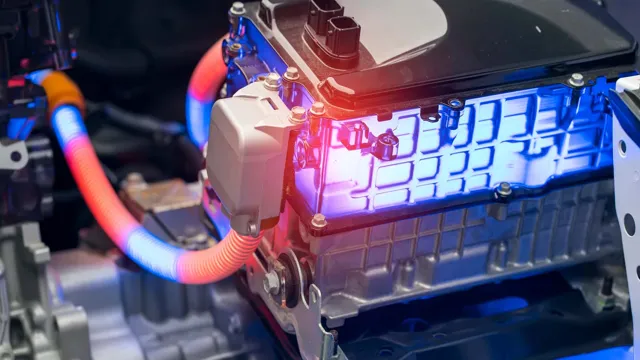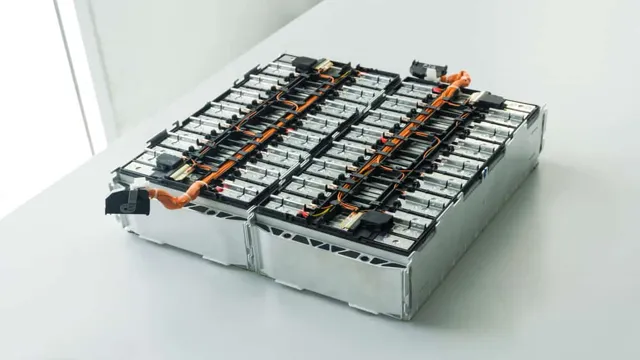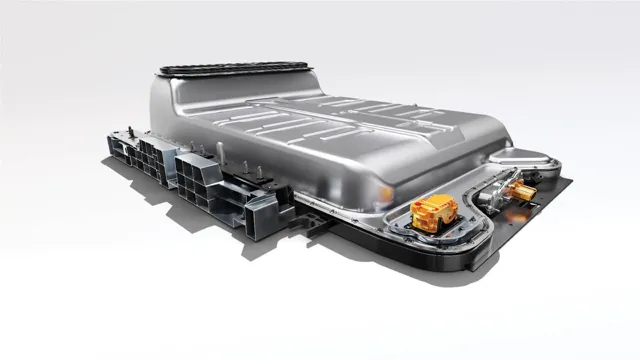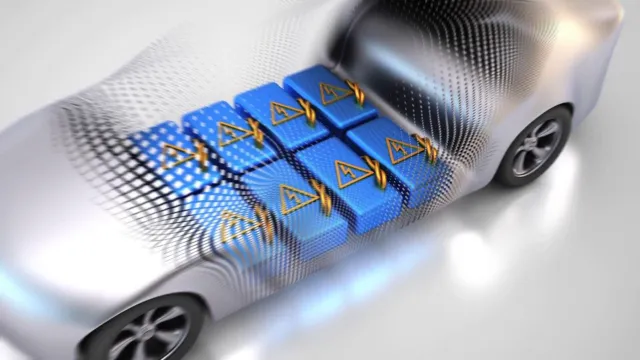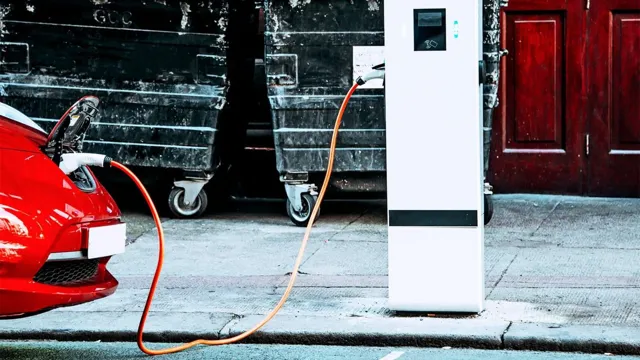Reviving the Power of Your Electric Car: A Guide to Recycling Batteries
As the demand for electric cars surges, so does the need for electric car battery recycling. Many people wonder how it’s done and what happens to the thousands of lithium-ion batteries that power these vehicles. While the process may seem complicated, it’s actually quite straightforward.
Recycling centers use a series of mechanical and chemical processes to extract the valuable materials in the batteries, such as lithium and cobalt. These materials are then repurposed for other uses, such as new battery production or even fertilizer. So, let’s dive in and learn more about the fascinating world of electric car battery recycling!
Why Recycle Electric Car Batteries?
Electric car batteries are not only a crucial component of electric vehicles but also have an environmental impact upon disposal. Recycling batteries have a significant impact on the environment because it reduces waste build-up and prevents toxic chemicals from polluting the air and water. As electric cars continue to grow in popularity, so does the need for proper battery disposal.
Recycling electric car batteries recyclability rate is quite high compared to other disposables. Recycling car batteries will help retrieve valuable metals like lithium, copper, and cobalt; these can then be used for future battery production, thereby keeping their value in the economy. By recycling electric car batteries, we can minimize the risk of soil and water pollution, save energy, reduce the production of greenhouse gases, and keep harmful chemicals out of the environment.
Environmental Impact of Lithium-Ion Batteries
Electric car batteries have a significant impact on the environment due to their composition of materials such as lithium-ion, cobalt, and nickel. As these batteries reach the end of their life span, they pose a serious threat to the environment if not properly discarded. Recycling electric car batteries is essential as it helps in reducing the carbon footprint and minimizes the depletion of natural resources.
The recycling process can recover valuable materials like lithium, cobalt, nickel, and other metals, which can be used to manufacture new batteries or other industrial applications. In addition to reducing greenhouse gas emissions and pollution, recycling electric car batteries also helps in eliminating the risk of hazardous materials leaching into the soil and water sources. Therefore, it is crucial to encourage people to recycle their old electric car batteries to reduce the strain on the environment and promote sustainable practices.
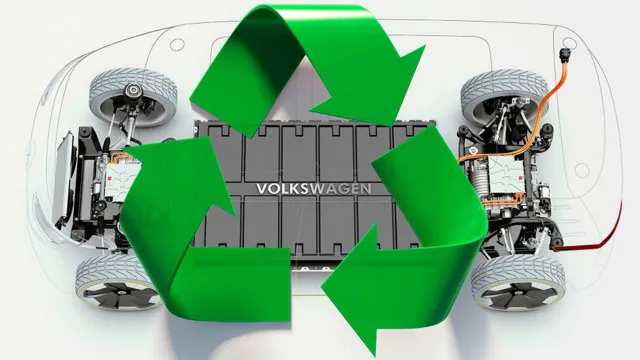
High Demand for Lithium-Ion Batteries
In recent years, the demand for lithium-ion batteries has skyrocketed due to the surge in popularity of electric vehicles. However, with the increase in demand comes the issue of waste and the need for sustainable practices, such as battery recycling. Electric car batteries significantly reduce carbon emissions, but without proper disposal or recycling, they can also pose environmental risks.
Recycling electric car batteries not only minimizes waste and pollution but also allows for the recovery of valuable metals such as cobalt, nickel, and lithium, which can be reused in producing new batteries. Consider recycling your electric car battery when it reaches the end of its lifespan, as it not only helps preserve our planet but also plays a part in driving the sustainability movement forward.
How Electric Car Batteries are Recycled
When it comes to electric cars, concerns sometimes arise about what happens to their batteries once they reach the end of their lives. Luckily, electric car batteries are recyclable, and the process is becoming more and more sophisticated every year. During the recycling process, the batteries are first broken down into their individual components.
These components include materials such as cobalt, nickel, lithium, and copper, among others. These materials are then processed and sorted so that they can be reused in the creation of new batteries and other products. Not only does the recycling process reduce waste and prevent materials from ending up in landfills, but it also conserves valuable resources and reduces the environmental impact of battery production and disposal.
So, next time you’re driving an electric car, you can rest easy knowing that the batteries won’t go to waste.
Disassembly and Sorting of Battery Components
Recycling electric car batteries plays a vital role in a sustainable future. The first step in the recycling process involves disassembly and sorting of battery components. This process can be complicated because electric car batteries are made up of different types of cells and materials that require different methods of handling.
Once the battery is disassembled, each component is sorted and processed accordingly. Lithium-ion cells, for example, can be reused in new batteries or sold to companies that manufacture batteries for other applications. The plastic casing that houses the battery can be recycled, and the metal components can be melted down and made into new products.
The recycling process not only supports the environment but also creates economic opportunities for those who participate in it. By recycling electric car batteries, we can reduce waste, conserve resources, and take steps towards a more sustainable future.
Hydrometallurgical Processes
Recycling Electric Car Batteries with Hydrometallurgical Processes As the world shifts towards sustainable practices, the demand for electric vehicles continues to grow. However, with their increasing popularity come challenges in managing their complex batteries, which are made up of various metals, including lithium, cobalt, nickel, and manganese. Fortunately, hydrometallurgical processes provide an effective way to recycle these batteries.
The process starts with collecting used batteries and draining their electrolytes, typically composed of lithium salts and organic solvents, then breaking them down into their constituent parts. The next step is to leach the metals from the battery modules using acid or alkaline mixtures. By controlling the pH and temperature of the solution, the metals can be selectively precipitated and purified.
Once the metals have been extracted, they can be refined and used to manufacture new batteries, reducing the need for mining virgin materials. Additionally, recycling these metals helps to reduce the environmental impact of battery disposal, which can leach toxins into the soil and groundwater. Overall, hydrometallurgical processes provide a sustainable solution for recycling electric car batteries.
By recovering valuable metals from these batteries and repurposing them to make new ones, we can minimize the environmental impact of these crucial components of modern transportation.
Pyrometallurgical Processes
Electric car batteries are becoming more and more in demand as people switch to electric vehicles due to environmental concerns. However, the question arises: what happens to these batteries when they are no longer useful? The answer lies in pyrometallurgical processes. These processes involve heating the batteries up to extreme temperatures and smelting them to extract useful materials.
This not only recovers valuable metals like cobalt, nickel, and lithium, but it also reduces the environmental impact of disposing of these batteries in landfills. By recycling electric car batteries, we can ensure that we are being responsible and environmentally conscious with our resources.
Recycling Technologies Used Today
When it comes to electric cars, one of the biggest concerns is what happens to the batteries after they are no longer useful. Fortunately, there are recycling technologies in place to solve this problem. These technologies involve dismantling the batteries into their component parts and separating the precious metals, such as cobalt and nickel.
The materials can then be reused in producing new batteries or other electronics. In addition to environmental benefits, recycling electric car batteries can also create new business opportunities and save costs in the long run. As electric cars become more popular, it’s essential that we continue to invest in and improve these recycling technologies for a sustainable future.
Battery-To-Battery Recycling
Battery-to-battery recycling is a process that recovers valuable materials from end-of-life batteries and uses them to make new batteries. Today, there are several recycling technologies available that enable more efficient and sustainable battery production, such as pyrometallurgy, hydrometallurgy, and biometallurgy. Pyrometallurgy involves the use of high temperatures to melt batteries, separating materials into different layers based on their melting point.
This process is useful for recycling large quantities of batteries but is not suitable for all types of batteries, as some materials may be lost to evaporation or oxidation. In contrast, hydrometallurgy involves using chemicals to dissolve batteries and separate materials by their solubility. It is more versatile than pyrometallurgy and can be used to recycle a broad range of batteries.
Biometallurgy is a newer process that uses bacteria and other microorganisms to extract valuable materials from batteries. This process is still being researched, but it shows promise for reducing the environmental impact of battery recycling. By using these recycling technologies, we can recover valuable materials from end-of-life batteries and reduce the need for mining new resources.
Closed-Loop Recycling
Closed-loop recycling is a sustainable process that has gained popularity in recent years due to its environmental benefits. This approach entails the collection and processing of used materials such as plastic, paper, and metal into new products. Recycling technologies employed today include pyrolysis, mechanical, and chemical processing.
Pyrolysis involves heating the waste in the absence of oxygen to obtain fuel, while mechanical processing includes crushing and shredding the waste into small pieces that can be used as raw materials in the production of new products. Chemical processing, on the other hand, facilitates the chemical breakdown of the waste, thereby producing recyclable materials. The use of these technologies has been instrumental in the reduction of waste in landfills and the promotion of a more sustainable environment.
Overall, closed-loop recycling is a promising solution to the growing problem of waste management and is expected to gain even wider adoption in the coming years.
The Future of Electric Car Battery Recycling
Electric car battery recycling is becoming increasingly important as more and more people shift towards sustainable transportation. Currently, most electric car batteries end up in landfills, but this is not a sustainable solution. Recycling these batteries has the potential to reduce waste and conserve valuable resources.
The good news is that companies are starting to recognize this and invest in battery recycling technology. One promising technology is pyrometallurgy, which involves heating the batteries to high temperatures to recover valuable metals. Another option is hydrometallurgy, which uses chemicals to dissolve the metals.
The future of electric car battery recycling is bright, and it’s essential for us to keep finding ways to make it more efficient and cost-effective. By doing so, we can reduce our footprint on the planet and move towards a greener and cleaner future.
Conclusion
Electric car batteries are like the superheroes of the automobile world. They provide the power that propels us forward, but when their time is up, they can be recycled and repurposed to save the planet in a whole new way. So, the next time you see an electric car driving by, remember that it’s not just a smart choice for the environment, it’s also doing its part to save the world one battery at a time.
“
FAQs
Why are electric car batteries recyclable?
Electric car batteries are recyclable because they contain valuable materials such as lithium, cobalt, and nickel that can be extracted and reused in new batteries or other products.
How is the recycling process for electric car batteries different from traditional recycling methods?
The recycling process for electric car batteries involves a specialized process to separate the valuable materials from the batteries, which can then be reused in new batteries or other products. This process is different from traditional recycling methods because of the specific materials involved and the need for specialized equipment.
Can electric car batteries be reused after they have been recycled?
Yes, electric car batteries can be reused after they have been recycled. The extracted materials can be used to create new batteries, or they can be repurposed for other products.
What happens to electric car batteries that are not recycled?
If electric car batteries are not recycled, they can end up in landfills where they can release harmful chemicals into the environment. Additionally, the valuable materials in the batteries are not reused, which can lead to a depletion of these resources over time.
